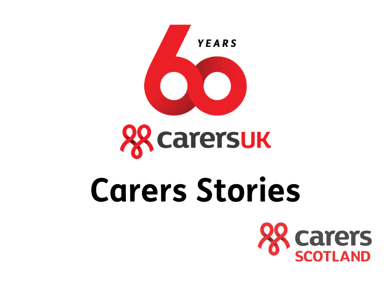Read our 12 tips
With so many living costs rising, it may feel like a real struggle to make ends meet at the moment.
Here are some suggestions which could help make a difference.
1. Get a financial MOT
Arranging a benefits check might be a good way to take a fresh look at your finances and get some impartial guidance to find out if there’s anything else you could be entitled to. You can email our Helpline Team at advice@carersuk.org
2. Make travel costs lighter
The costs of travelling to see relatives and friends at can add up. There are some ways you could get discounts though on your travel. For example, there is the Blue Badge scheme which offers parking concessions for disabled people and this could apply to you or someone you look after. In Northern Ireland, it is referred to as the Blue Badge Unit (0300 200 7818).
With fuel costs being high currently, a cheaper alternative could be train travel. There are cheaper rail fares also available with the Disabled Person’s Railcard which can be ordered online or by calling 0345 605 0535. Although this isn’t available in Northern Ireland, Translink offers a range of concession and senior citizen passes. Visit Translink's website or call 028 9066 6630. The Motability scheme also offers rental deals if you are claiming a disability benefit and may be worth looking into.
3. Winter Fuel Payments
You could be entitled to a Winter Fuel Payment if you’re already receiving certain benefits (if you've reached the qualifying age). To find out if you’re eligible to claim, call the Winter Fuel Payment helpline on 0800 731 0160 or visit the GOV.UK Winter Fuel Payment page.
4. Household bills
In acknowledgement of the challenging cost of living rises, some companies and providers are offering new deals and reduced rates for those who are feeling the squeeze financially or receiving benefits. It may also be helpful to do some research to compare tariffs and see if you can get a cheaper rate for regular outgoings such as telephone bills, internet providers and insurance. Using comparison websites can be a helpful way to do this.
It might also help to review your existing deals on TV packages or mobile phone contracts – do you use all of your allowance? If not, you could try negotiating a new rate or package with your provider. Also see our guidance about TV licences.
As part of our cost of living series, Darren Cole, a financial expert and professional trainer from Secondsight, shares some top tips for keeping in control of your household finances:
Liz Edwards (Helpline adviser with Carers UK) also talks through the energy support package including the Warm Home Discount scheme and other support available to your household. Information correct at time of recording (November 2022).
5. Meters - getting smart
Some people find that having a water meter or smart meter for gas or electricity is a more efficient way to keep an eye on how much energy or water you're using and report usage with automatic readings. See our guidance on smart meters.
6. Council Tax discounts
You may be entitled to certain discounts on your bill as not everyone is counted for Council Tax purposes. See our Council Tax guidance to find out more. (If you live in Northern Ireland, click the link to the Rate Relief scheme.)
7. Grants
When unexpected costs arise, it’s not just your local council that might be able to help. There are lots of charities that award grants to people in financial need. See our guidance on grants and schemes.
8. Healthcare
If you are on a low income, you may be eligible for free healthcare such as free prescriptions and free eye tests. To find out if you qualify for help with NHS costs, visit gov.uk.
Through the NHS Low Income Scheme, you may also be able to get help with transport costs to and from hospital under the Healthcare Travel Costs Scheme. Call 0300 330 1343 to find out more. Read more on saving on health-related costs.
9. Budgeting Loans
These can help with one-off essential expenses if you get Pension Credit or certain other benefits. They are interest-free so you only pay back what you borrow. To apply, you can contact your local Jobcentre Plus, by calling 0345 603 6967 or visit GOV.UK to find out more.
10. Money matters
A helpful tip is to go through your bank statements and make sure that you don’t have any direct debits set up for services that you no longer use (i.e. a gym membership that you no longer make use of) or for insurance policies on items that you no longer own (i.e. technology insurance cover).
If you are concerned about repayments of a mortgage or a credit card with a high interest rate, then an option that you could look in to is switching to a different rate or transferring credit card provider. It’s always important to get some professional advice when looking in to these matters. The charity Step Change can provide advice around mortgage and credit card debts, and are available on 0800 138 1111.
11. Energy costs
We have a dedicated section with some ideas and tips to help reduce your outgoings in this area. See Help with energy costs.
12. Feeling stressed?
If you have reached a situation where you feel stressed about debt, there are organisations that can help. Avoid using credit cards or payday loans to fix the problem. Instead, contact a genuine debt charity such as National Debtline (0808 808 4000, nationaldebtline.org).
We know that not all of these tips will be applicable to everyone's caring situation, but we hope you will find some of them helpful.

Latest updates

60th Anniversary Stories: In Praise of Young Carers – Pearls (Poem)

Carers Scotland 60th Anniversary Reception and Exhibition

Government confirms benefit increases for 2026-27, including rise in Carer’s Allowance and earnings threshold
Got a question about caring?
Every day we hear from people who need help with looking after a friend or family member
Become a member for free
Joining Carers UK is free and takes just a few minutes.


